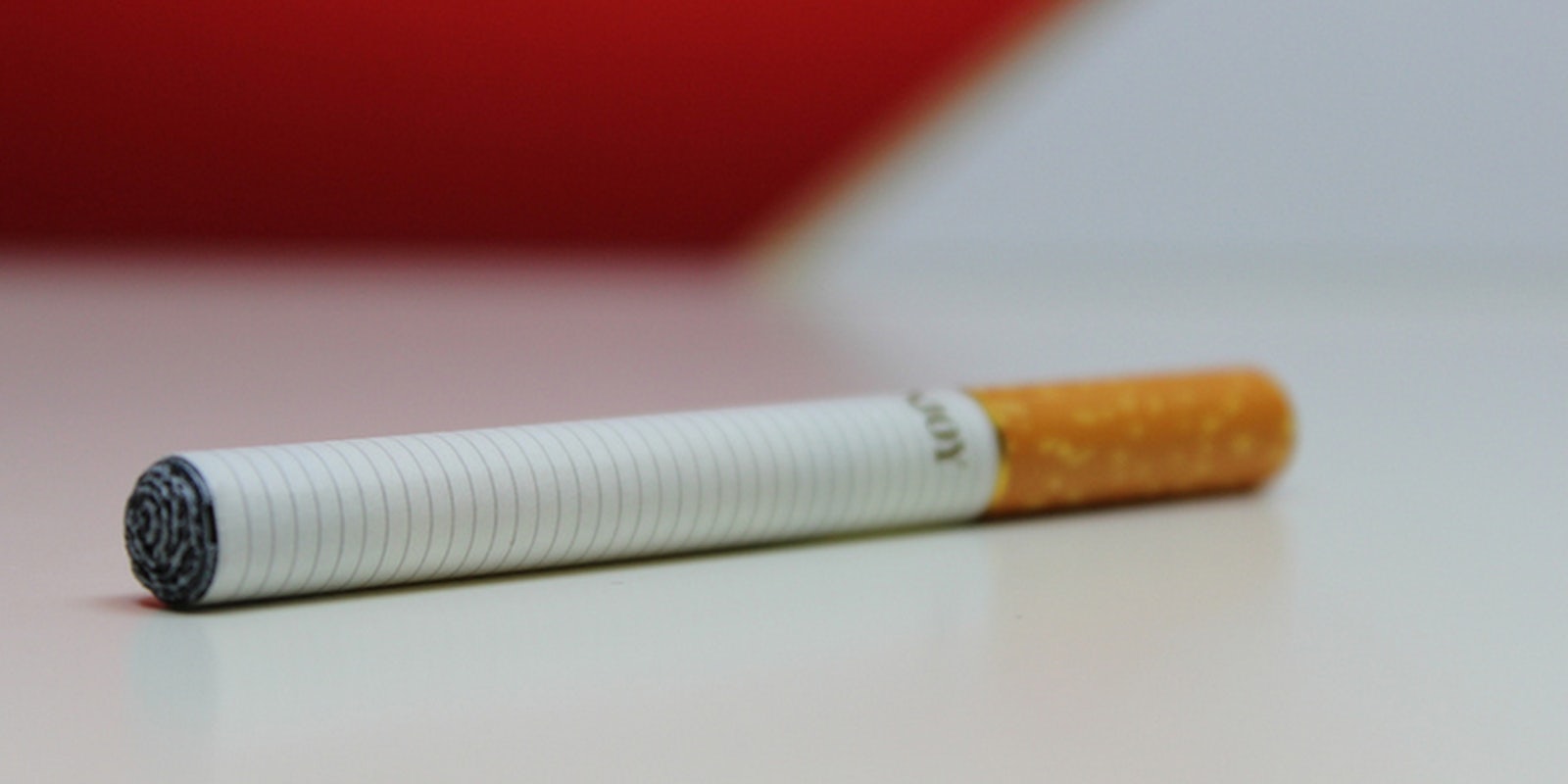As far as big tobacco is concerned, the Food and Drug Administration has long been their arch nemesis. The Joker to their Batman, the Wile E. Coyote to their Road Runner. But with the FDA’s recent ruling on e-cigarettes, the agency may have just become the industry’s new best friend.
In the competition to bring e-cigarette devices to the market, the traditional leaders in tobacco products—RJ Reynolds, Philip Morris and Lorillard—have actually struggled to keep up with newer, smaller companies that offer a more boutique, artisan blend of nicotine liquids for vapor usage. But the cost of complying with the FDA’s new demands for research and health screening could hand the competition for e-cig market dominance to the firms with the deepest pockets.
“There’s no vape shop anymore if this [law] goes through,” Greg Conley, president of the American Vaping Association, told Motherboard’s Meghan Neal.
The law in question is a proposed rule change that would require any e-cig product produced after 2007 to get FDA approval before it could be sold in the United States. To acquire agency approval is a $3-$4 million investment that takes roughly 5,000 research hours to conduct health impact studies.
Neal argues this would kill the thing many people like about vaping: the high-end shops that allow users to experiment with different flavors and mixtures. Most of these products come from smaller, start-up companies that would struggle—or simply fold—in the face of this new regulatory hurdle. The big companies have their own products—Lorillard has Blu and Reynolds has Vuse—but these disposable products don’t allow the same customized experience.
Indeed, the proposed FDA rules move could be more devastating to the burgeoning e-cigarette industry than the outright bans that a number of cities and states have adopted in recent years.
“The fear in the vaping community is that FDA regulations would inadvertently (or purposefully, as the more radical viewpoint goes) favor the big tobacco companies’ disposable cigs, essentially bringing the independent e-cig industry to a screeching halt,” writes Neal.
The health impact of e-cigarettes, which often use nicotine-infused liquids to produce inhalable vapor, remains a matter of contention. The general consensus seems to be that e-cigarettes are healthier than traditional smokes, but still not as healthy as abstaining from nicotine altogether. A recent study suggest that e-cigs still give off high levels of cancer-causing formaldehyde.
“This is an important moment for consumer protection and a significant proposal that, if finalized as written, would bring FDA oversight to many new tobacco products,” FDA Commissioner Margaret A. Hamburg, M.D., said at the time the new regulations were proposed late last month. “Science-based product regulation is a powerful form of consumer protection that can help reduce the public health burden of tobacco use on the American public, including youth.”
In recent years, e-cigarettes have grown into a billion dollar industry. According to the Economist, sales of e-cigarettes already reached $724 million as of April 12. That’s a 72 percent increase over sales from the same period in 2013.
Photo by Lindsay Fox/Flickr (CC BY 2.0)
